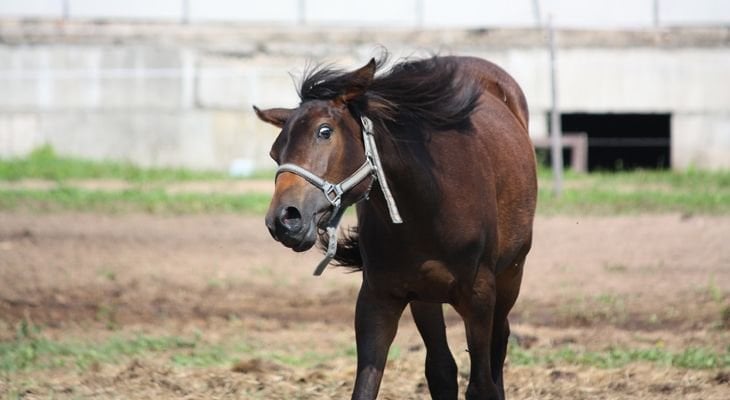Headshaking
- Created in Equine, Pet Health, Chronic Conditions

Head shaking shows up in horses as uncontrollable shaking, jerking or flicking of the head, with no obvious physical irritation causing the condition. While some cases may be mild, head shaking can be severe enough to make a horse dangerous or unsuitable for riding.
Other symptoms that may occur alongside shaking of the head include:
- Snorting or sneezing
- Rubbing the nose on the ground or on stationary objects
- Flipping the upper lip
- Shaking the head from side to side
- Hitting the face with the forelimbs
- Avoidance behavior
These symptoms are often worse while a horse is exercising, but they can show up even at rest. Some recent studies have found that a large number of horses are affected in the spring or early summer.
Causes of Head Shaking
There are many potential causes of head shaking. It is not always possible to identify the underlying reason for head shaking in horses. Two of the ones that have received the most attention are:
- Photophobia (or photic head shaking). This condition is not completely understood. It is thought to occur when light activates the optic nerve, which carries visual information to the brain. Some of the nerve signals may pass to the trigeminal nerve which runs to the nose, giving the horse the feeling of something in the nasal cavity. This is similar to what has been proposed for light-sensitive sneezing in people (photo sneezing).
- Trigeminal neuralgia. This condition also occurs in people. It is thought to be the result of a problem with the part of the trigeminal nerve in the brain (the other end is in the nose). This may make the nerve hypersensitive to warmth, cold, pollen, dust, allergies or many other irritants.
Other possible causes of head shaking include:
- Improper bit
- Incompetent rider
- Fear or anxiety
- Low levels of oxygen in the blood during exercise
- Ear mites or other ear infection
- Problems with the cranial nerve
- Cervical injury
- Eye disease
- Guttural pouch mycosis (fungal infection)
- Irritation or inflammation of the mucous lining inside the nose
- Bracken bugs or harvest bugs infestation (Trombicula autumnalis)
- Maxillary sinus osteoma (noncancerous growth of bone in the sinus)
- Equine protozoal myeloencephalitis (EPM), a parasite infestation
Treatment for Head Shaking
Treatment for head shaking depends on the underlying cause, and can involve treating infections or parasite infestations.
However, it is not always possible to know what is causing this behavior. Some ways to reduce head shaking behavior include:
- Blocking sunlight, dust, wind and other triggers with tinted contact lenses, face masks or hoods with dark or mesh eye cups or nose nets
- Permanent tracheostomy, a surgical procedure that allows airflow to bypass the nasal cavity by cutting a hole in the horse’s windpipe at the neck
- Medications to reduce nerve signals in the trigeminal nerve, such as the cyproheptadine (an antihistamine and serotonin antagonist)
If your horse continually exhibits head-shaking behaviors, call us today to schedule an appointment. We can examine, diagnose and treat your horse.


